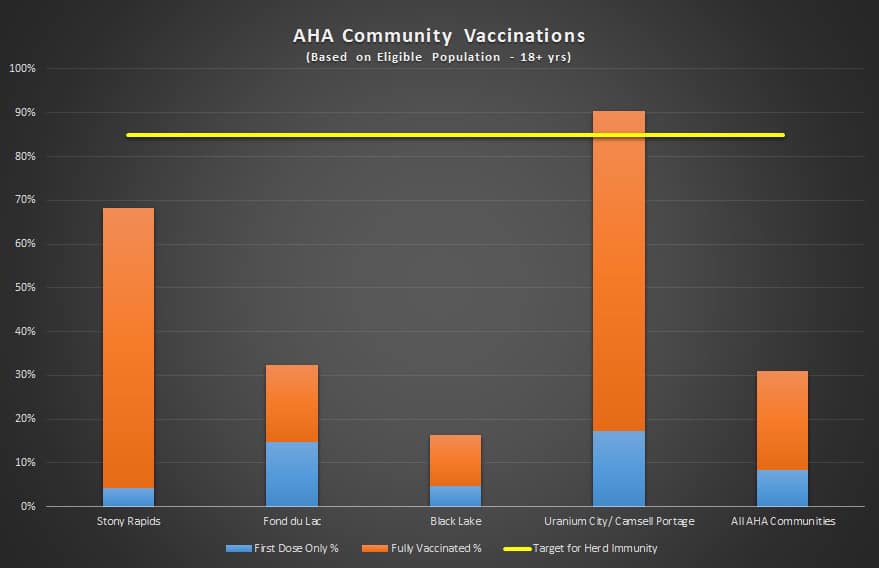(Image credit: Athabasca Health Authority. As of May 10.)
Premier Scott Moe said the Sask. Health Authority is planning to do additional correspondence into communities which are seeing lower COVID-19 vaccination uptake. This will include the Far North.
According to data provided by the Athabasca Health Authority, Fond du Lac has approximately 33 percent vaccination rate, with half being fully immunized. Residents of Black Lake account for just under 20 percent inoculated.
“We’d like to see as we go along some higher uptake in some of the northern communities, and we’re taking efforts and initiatives to increase the uptake not only in Northern Saskatchewan,” Moe said Friday at the conclusion of the spring legislative session.
“But we are in a markedly different position in the Far North and north or northern parts of our province than we were six months ago. And it’s I think it’s a real testament to the fact of how effective these vaccines are, even at one dose.”
The northern communities for Uranium City and Camsell Portage have exceeded the vaccination percentage required for herd immunity. Stony Rapids is approaching 70 percent.
Beginning next week, children aged 12 to 17 will be eligible to book a vaccine appointment for the Pfizer dose.
Moe said that health officials will be going into northern schools in June to offer an immunization to eligible children.
The Northern Inter-Tribal Health Authority is reporting 28 active cases in the entire northern region. Yet the Lac La Ronge Indian Band is accounting for 10 of those cases. Recently the First Nation brought its infection rate to zero, only to see it again climb.
Northern communities do have experience is addressing outbreaks. La Loche was devastated last spring not only in the community, but in its long-term care facility, killing two residents. The province mobilized health care staff, testing capacity and additional mobile isolation trailer, in a bid to quash the outbreak.
Moe said in the event of a community outbreak, health officials would ramp up vaccination efforts to reduce the spread of the virus.
“But if we do happen to have an outbreak due to travel or something of that nature, our first line of defense most certainly is to prioritize some vaccines and ensure that the vaccines they have enough vaccines in that community understanding everyone 12 and over is going to be eligible next week to offer those vaccines to everyone,” Moe explained. “Ultimately, the public health measures will do have some impact in the short term. But our way to actually control this virus into the in the in the longer term and on a more permanent basis is vaccine access and is vaccine uptake.”
